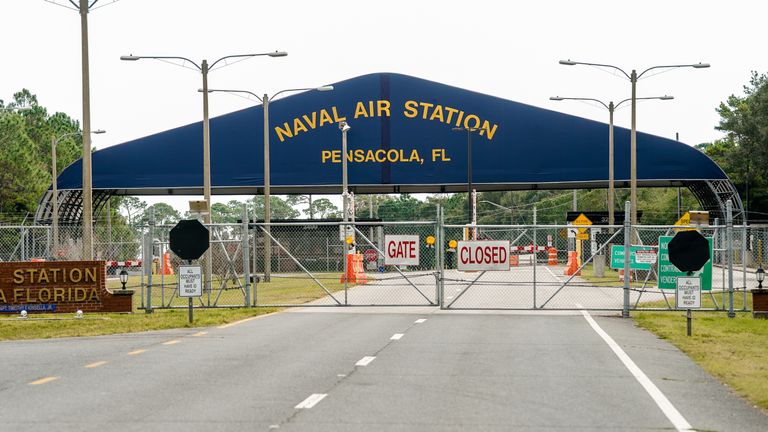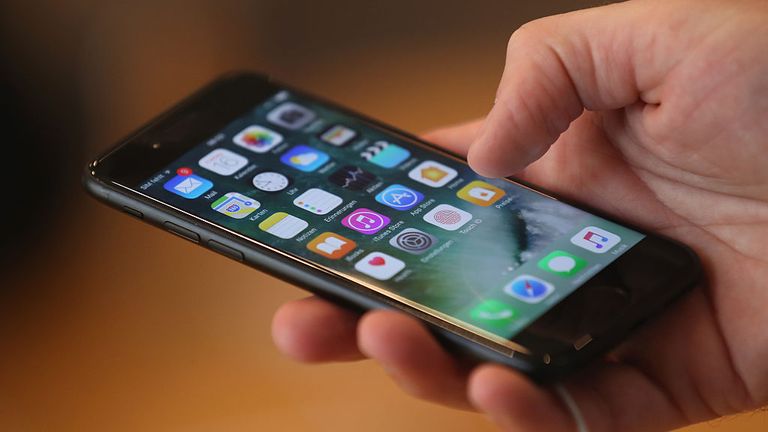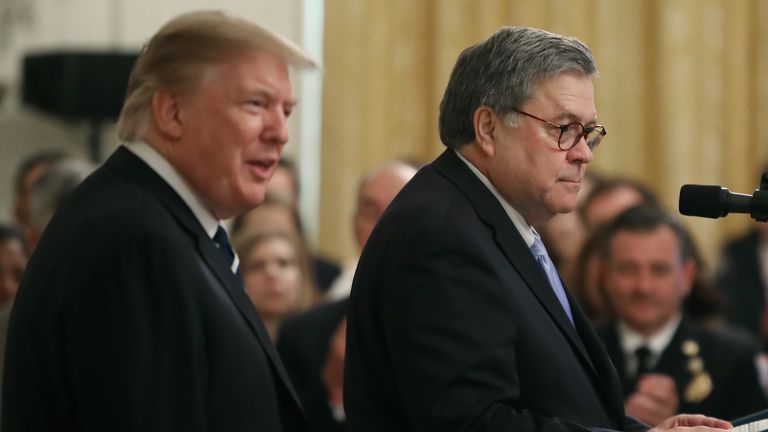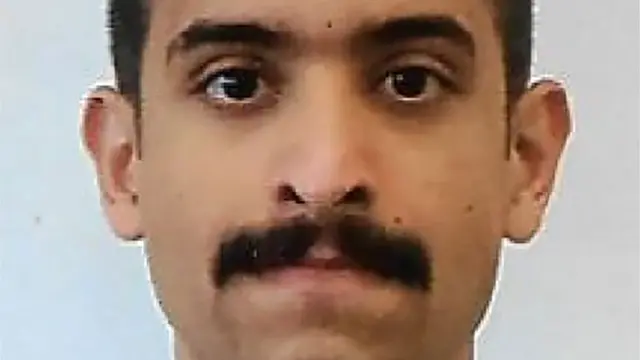The FBI has accessed two iPhones used by the perpetrator of a terrorist attack, claiming the devices reveal al Qaeda had directed the plot.
It is the latest development in a long-running debate about the degree to which technology companies should be obliged to change their products in order to assist law enforcement investigations.
Mohammed Alshamrani, a member of the Saudi air force who was training in the US,
killed three people
at the Pensacola navy air station in Florida on 6 December last year.

Image:Three people were killed at the Pensacola Naval Air Station during a mass shooting
In an audio recording released in February, al Qaeda in the Arabian Peninsula (AQAP) claimed to have directed the shooting.
FBI officials now say they have obtained evidence the gunman had been in regular contact with al Qaeda, describing the attack as "the brutal culmination of years of planning and preparation".
US Attorney General William Barr told a press conference on Monday: "Thanks to the great work of the FBI - and no thanks to Apple - we were able to unlock Alshamrani's phones."
It is not clear how the FBI managed to access the iPhones, one of which Alshamrani shot.
NBC reported that the agency overcame Apple's technology preventing automated passcode guesses.
Apple said it responded to the FBI's first requests for information "just hours after the attack" and provided "every piece of information available to us, including iCloud backups, account information and transactional data for multiple accounts".
"The false claims made about our company are an excuse to weaken encryption and other security measures that protect millions of users and our national security," the company stated.

Image:Older iPhone models don't have the same protections as newer devices
Mr Barr said a "trove of information" had been found on the phones due to the "FBI's ingenuity, some luck, and hours upon hours of time and resources", without which "this information would have remained undiscovered".
Alshamrani had been communicating with al Qaeda "using end-to-end encrypted apps, with warrant-proof encryption", Mr Barr added.
The terrorist had "been radicalised by 2015" and joined the Royal Saudi Air Force with the specific intention of carrying out a "special operation" according to the Department for Justice.
The complaint echoes the case of the San Bernadino terrorist attack in which the
FBI attempted to force Apple to create software
which would allow it to unlock one of the attacker's phones.
The FBI ultimately withdrew its legal request after managing to unlock the iPhone through a third party, which was paid $900,000 (£737,000) to break into it.

Image:US Attorney General William Barr criticised Apple
At the time some of Apple's biggest competitors, including Google and Microsoft, supported it in a joint legal brief appealing against a court decision forcing it to create a "back door" for law enforcement to access its devices.
"It is because we take our responsibility to national security so seriously that we do not believe in the creation of a back door," said Apple.
The company described the FBI's proposals as making "every device vulnerable to bad actors who threaten our national security and the data security of our customers".
"There is no such thing as a back door just for the good guys, and the American people do not have to choose between weakening encryption and effective investigations."
 简体中文
简体中文





